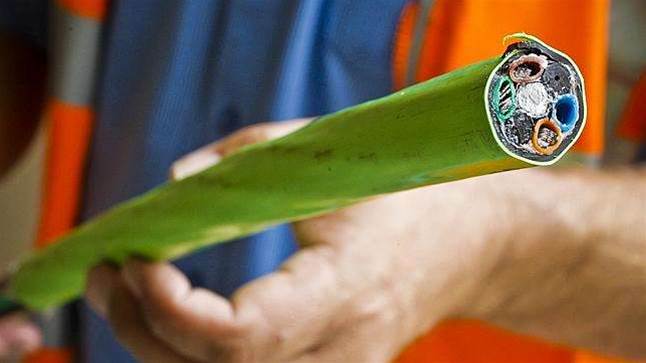A Labor government would return two million Australian homes and business to fibre-to-the-premises technology and phase out fibre-to-the-node under its $57 billion national broadband network.

Opposition leader Bill Shorten today said his party would not increase the government's equity cap of $29.5 billion, but would cap the total funding of the project - the remainer of which is to come from the private sector - at $57 billion.
NBN Co revealed last August that its construction costs would blow out past the expected $41 billion price tag to between $46 billion and $56 billion.
"Labor will spend exactly the same amount of public funding on the NBN as the Liberals. There will be no impact on the budget from this announcement," the party said in a statement today.
"The public equity contribution will be the same regardless of who wins the election. The difference is that up to two million more Australians will get a fibre-to-the-premises NBN under Labor."
Labor would phase out fibre-to-the-node when the current bundle of work is completed in order to scale up design and construction of FTTP.
It would continue the fixed wireless, satellite, HFC, and fibre-to-the-basement rollouts. FTTP would be targeted towards greenfields developments. Labor will "explore the potential" for fibre-to-the-distribution point technology.
The change would bring the portion of homes and businesses with FTTP to 39 percent of the network, compared to the current forecasted 20 percent.
It said design contracts for FTTN rollouts had been issued for around 3.5 million premises at last count - a "proportion" of which would be renegotiated to FTTP.
Labor's original NBN would have brought FTTP to 93 percent of premises within the NBN footprint.
Labor is leaning on NBN corporate plan estimates that FTTP will cost $3700 per home to roll out, but said it would recognise cost efficiencies of 19 percent over the build period.
"It is no longer possible to roll out fibre-to-the-premises to 93 per cent of homes and businesses in one stage," the party said.
"Labor cannot fix the mess Mr Turnbull has made with the flick of a switch, or by pulling out every node, or stopping all the work NBN is currently doing without potentially causing more problems and wasting a lot of sunk investment [$15.7 billion over the last three years]."
Infrastructure Australia will be asked to come up with a plan in Labor's first term for which areas should be transitioned to FTTP.
The party said it was still aiming for completion of the "initial" rollout of the NBN by June 30, 2022, as is the current Coalition government.
It claimed the revised definitive agreements signed with Telstra and Optus would not require renegotiation to achieve its FTTP aims.
"NBN Co retains a fibre-to-the-premises design and construct capability, already has IT systems in place to manage fibre-to-the-premises, already has construction contracts in place which accommodate fibre-to-the-premises with no volume restrictions, and already has definitive agreements in place with Telstra that are “technology-agnostic”," it said.
HFC headache
It did however admit that the HFC deals with the telcos posed a problem, forcing it to continue with the Coalition's HFC rollout plans.
NBN Co has a $1.6 billion contract with Telstra for HFC, and a $400 million deal with Arris for cable modem termination systems. NBN Co has also already spent $1.5 billion to adapt its IT systems for HFC.
"In addition, the revised definitive agreements with Telstra will be operational, committing NBN Co to acquire Telstra’s entire HFC network once the first HFC line has been transferred, with restrictions in place on NBN Co sale of HFC assets," Labor said.
"These constraints do not apply to the copper network. NBN Co has also taken on an obligation to maintain the Telstra HFC network so that Telstra can deliver on its Foxtel contract.
"Under Labor, the rollout of HFC will continue, recognising the contracts in place, the substantial capital expenditure already sunk, and the constraints placed on future governments by Mr Turnbull in the revised definitive agreements."



_(28).jpg&h=140&w=231&c=1&s=0)
_(36).jpg&h=140&w=231&c=1&s=0)
.png&h=140&w=231&c=1&s=0)





 iTnews Executive Retreat - Security Leaders Edition
iTnews Executive Retreat - Security Leaders Edition
 Huntress + Eftsure Virtual Event -Fighting A New Frontier of Cyber-Fraud: How Leaders Can Work Together
Huntress + Eftsure Virtual Event -Fighting A New Frontier of Cyber-Fraud: How Leaders Can Work Together
 iTnews Cloud Covered Breakfast Summit
iTnews Cloud Covered Breakfast Summit
 Melbourne Cloud & Datacenter Convention 2026
Melbourne Cloud & Datacenter Convention 2026
 The 2026 iAwards
The 2026 iAwards











_(1).jpg&h=140&w=231&c=1&s=0)



